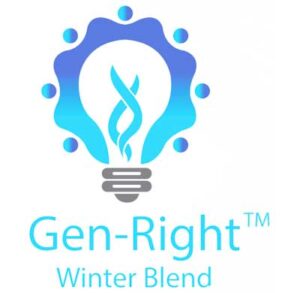

This product is designed for emergency power generation and used to help mitigate risk in long-term storage of diesel fuel in healthcare environments. It also helps meet compliance with TJC, DNV-GL and NFPA 110 – life safety code. By treating fuel with our unique additive that includes these filming amines, it will help you ensure your fuel is stable and ready to be used when you need it. This is some additional benefits to using our products which is available in a summer and winter blend, the selection is based upon thermal regional zones.
- Dissolves away any sludge in the system
- Prevents formation of new sludge
- Cleans nozzles and injectors (especially important on High Pressure Common Rail (HPCR) systems)
- Stops and prevents corrosion of fuel tanks and components
- Provides lubricity and reduces metal wear in pumps and injectors
- Includes a fuel anti-freeze which, unlike most anti-gel additives, is designed to deal with all three common cold weather concerns: waxing, gelling, and freeze-ups.
- Cetane boost.
- Cleans tanks, fuel lines, filters and strainers.
- Improves fuel economy.
- Reduces exhaust particulate.
- Provides a Microscopic Corrosion Coating to help prevent MIC.
- Warranty safe for all diesel engines.
- EPA Registered
The fuel additives made by the big companies that have (or used to have) real chemists on their staff typically consist of more complex ingredients that fall into three categories: dispersants (surfactants), corrosion inhibitors, and, in some cases, biocides. Conventional wisdom in this business says that you need to break up sludge so that a biocide can gain access to the “bugs” that are causing the problems, and that corrosion of steel tanks can be prevented by using any of several corrosion inhibitors that slow down corrosion in water. All of that makes sense on paper — but it has never really worked well in the real world.
What we learned by years of trial and error is that slime forming bacteria (the kind that make sludge happen) are tough to treat with the above approach. They effectively hide from biocides — and can even turn some biocides into food! Even if the above approach worked well, bacteria in the environment tend to develop resistance to biocides over time. Those corrosion inhibitors that work against water don’t necessarily work against water and corrosive bacteria. The only type of corrosion inhibitor that works well in a fuel sludge situation are what are called “filming amines.” What we also learned is that certain filming amines also dissolve the bacterial slime that makes sludge stick together — and that certain combinations of filming amines stop the formation of sludge in the first place.
We take advantage of these things to use filming amines — at high enough doses — to effectively dissolve existing sludge, prevent new sludge, and completely stop internal corrosion of steel tanks — even in the presence of free water. According to our testing, no other additive (except one particular “biocide that is also a filming amine) can make this claim.
Spill Kits, Absorbents, and Spill Kit Refills
All are available in kits for Universal, Oil Only, and HAZMAT applications.
Call us for details and specifications.
Spill Kits
- Mobile Kaddies (22 gal)
- Mobile Carts (146 gal)
- Drum 17 gal
- Drum 26 gal
- Drum 58 gal
- Drum 89 gal
- Buckets
- Pan Kits
- Zipper Bags
Refills
- Skimmers
- Pads
- Vehicles
- Pads
- Sweeps
- Socks
- Rolls
- Pillows
- Traffic Rugs
